I'M ONE TO TALK
Our Blog Posts will help you reach your full potential in becoming a confident conversationalist. New topics each week.
Learn from a Leader: Chaotic Decision-making
Choosing not to make a decision is still a decision.
Even if you made that decision because you were waiting for more information to make the "real" decision.
Waiting for more information isn't always the best course of action, especially when dealing with the uncertainty caused by a pandemic. The best leaders take action and create options and flexibility. That's as true now as it was when the pandemic started.
I think it's great advice, but I'm a little biased since it comes from my dad. He knows what he's talking about a number of years in the C-suite.
Sports Conversation Starters for Your Workweek
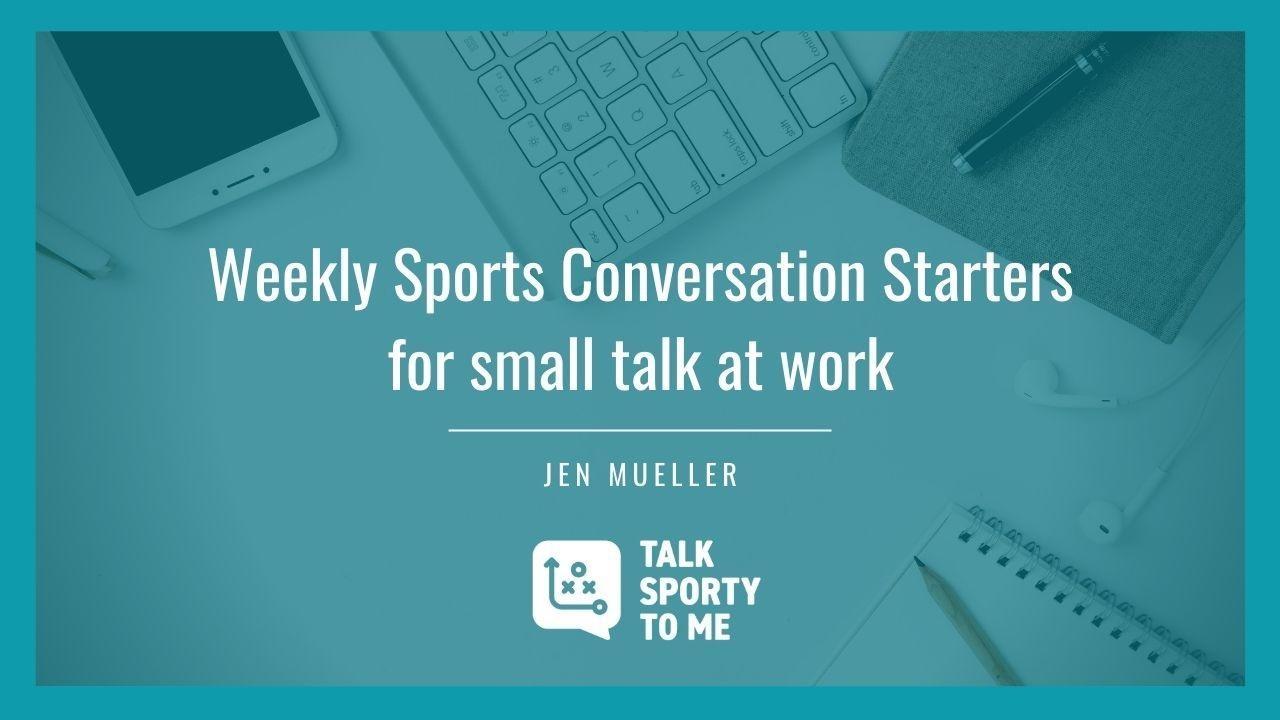
Usually sports conversations are my outlet. A chance to talk about something other than news. An opportunity to be entertained, and a chance to build relationships with sports fans.
In fact, that’s how I’ve encouraged people to use sports small talk for more than a decade.
As a sports broadcaster those conversations are also part of my job, and increasingly more stressful because it forces me to consider what happens if sports don’t return. For me sports conversations are less of an outlet and more like a huge reason for concern and worry.
I’ve heard a lot of people say there are bigger things to deal with than sports, and there is truth to that, but there’s also the other side of the coin – without sports a lot of jobs are lost.
Here’s why I’m saying this: there’s more than one point of view to consider. In every conversation. Be careful about being shortsighted in the way you approach small talk.
Just a few...
Sports Conversation Starters for Your Workweek
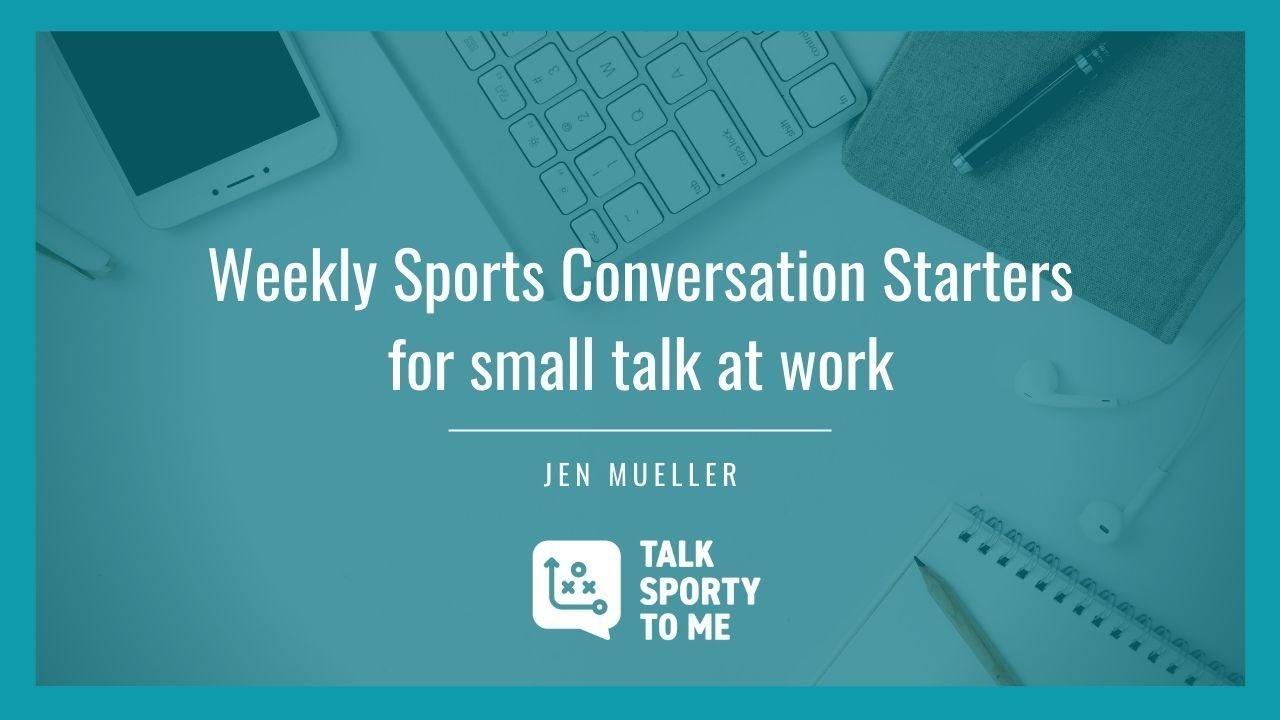
Maybe it’s just me, but there’s nothing like a series of 30-second sprints in the middle of a three-mile run to hammer home just how long 30-seconds is. It doesn’t sound like much time, but it’s more than enough to leave my legs feeling like Jell-O and make me gasp for air.
That same 30-seconds is all it takes to further a business relationship and engage in productive small talk.
Conversations don’t have to be lengthy to make an impact.
Short and sweet can do the trick. Try these sports topics making headlines this week to get the ball rolling.

Communicating with Remote Teams: Include data and connection
A remote work environment doesn't change the preferred communication style of the people working remotely.
A remote environment does change your ability to read the room to figure out if you've landed your message.
It's tricky without audience feedback and engagement.
Here's what you need to do when preparing presentations, trainings and most messaging with your virtual team, account for two main types of people: data-driven and connection-driven.
Communicating in a way that people want to hear, or are able to hear, that message increases the likelihood of landing your message in a way that sparks action.
The video explains more.
Practicing Leadership: How do you Talk to Yourself?
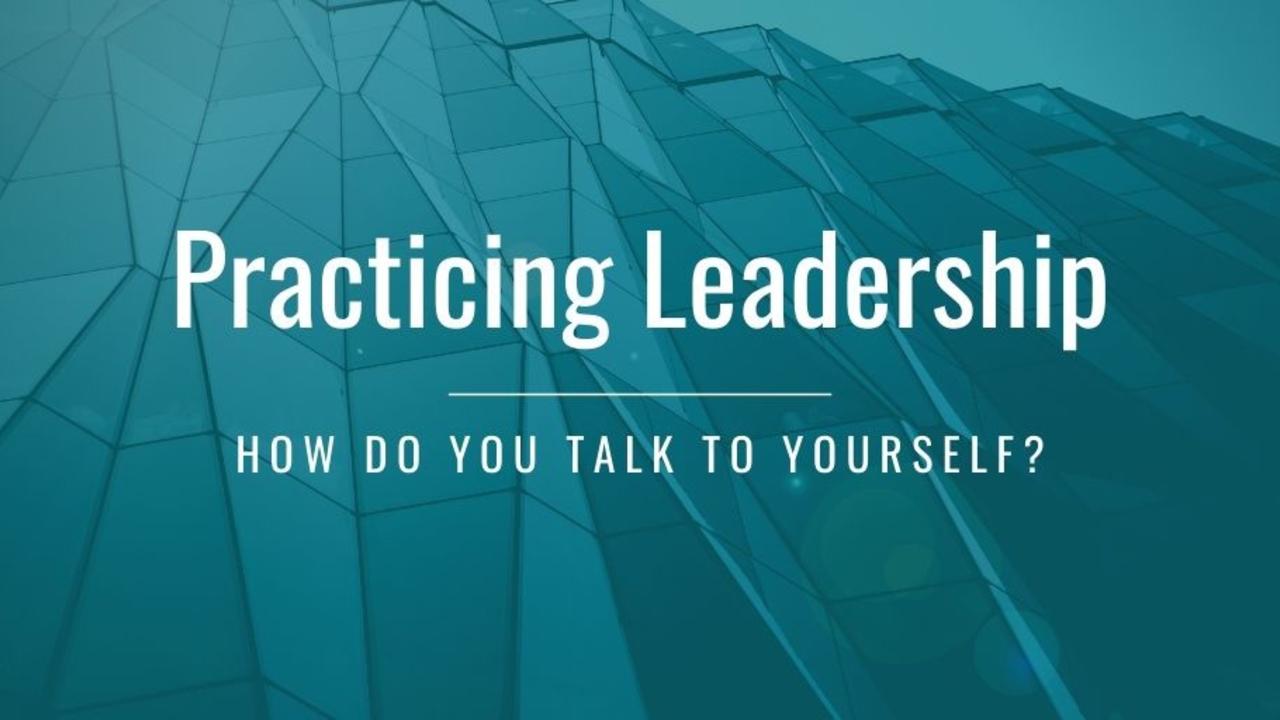
“Are you talking to yourself again?”
I’ve lost track of the number of times my husband has asked that question during quarantine.
It’s something I do when problem-solving or trying to remember something. I usually ignore him because there’s no pretending I’m not carrying on a full-blown conversation with myself.
But there is something I won’t ignore anymore the use of certain phrases that should be canned from how we describe what’s happening right now – unprecedented and new normal.
My background as a TV producer leads to me believe emails have been sent from executive producers to writers and producers across the country telling them not to use those words or phrases. (That happens occasionally when words get overused and lose their meaning or aren’t providing an actual description of anything.)
Let’s be honest, by this point we recognize we have all experienced something unexpected that will reshape the way we do...
Sports Conversation Starters for Your Workweek
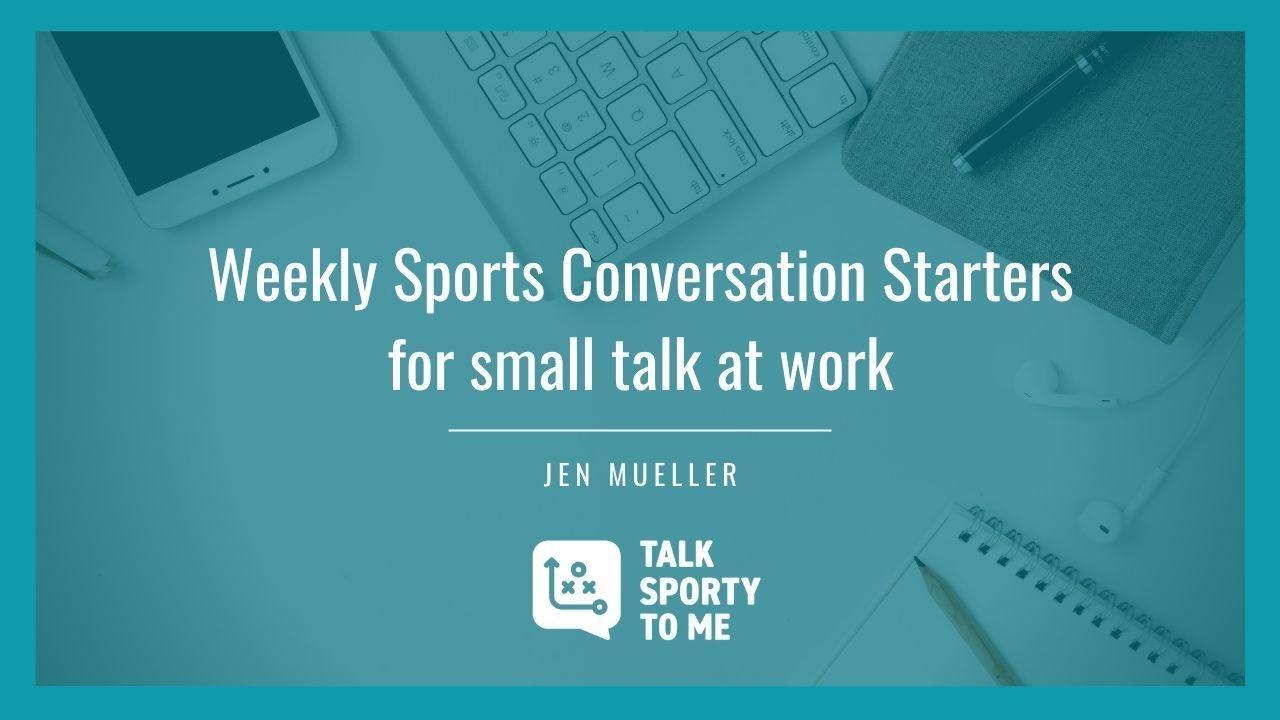
Build relationships before you need them.
I offered that piece of advice to college students starting their careers in sports broadcasting. I can’t only talk to an athlete, coach or executive is when I need something and expect them to open up, share their perspective or give me any answer at all. If I don’t put relationships first they will be more likely to turn and walk the other way when they see me coming instead of giving me a warm greeting and insightful answers.
The need for tough conversations and thoughtful discourse won’t go away. Those conversations can get easier if you build relationships along the way. You don’t have to start with the tough conversation. You can start with small talk.
And those small talk conversations can start with sports, like these topics making news this week.
Big Conversations Take Practice. Start Small.
The world needs a lot of things right now.
The most important of which might be communication skills. Not the ability to talk, but the ability to truly communicate, engage in discourse, listen to people with different viewpoints and seek common ground.
Communication skills have never been more important.
It will take big, difficult, awkward, emotional and thoughtful conversations to spark change. If you're not ready to jump into those kinds of conversations - don't opt out altogether, start small.
There are ways to practice the skills you need for big moments. I suggest trying sports conversations. The video explains why.
Sports Conversation Starters for Your Workweek

People have different opinions, life experiences, points of view, desired outcomes, reactions and ways of dealing with things.
We see that playing out in different ways around the country.
It takes practice and intentionality to not just talk through differences, but to hear them.
Practice starts in day-to-day interactions, that involve less stress and less incendiary topics. Practice starts with your small talk and it can start with a sports conversation. Sports fans disagree all the time about unimportant things like a manager’s decision to pinch-hit in the 8th inning, a play-call on third down, a lead driver pitting with two laps to go in a NASCAR race.
Sports is more than stats and scores. It can be a way to practice listening and disagreeing so that you’re prepared to do that in bigger moments when there are more important things to talk about.

Camera Ready: A Broadcaster's Advice for Virtual Presentations
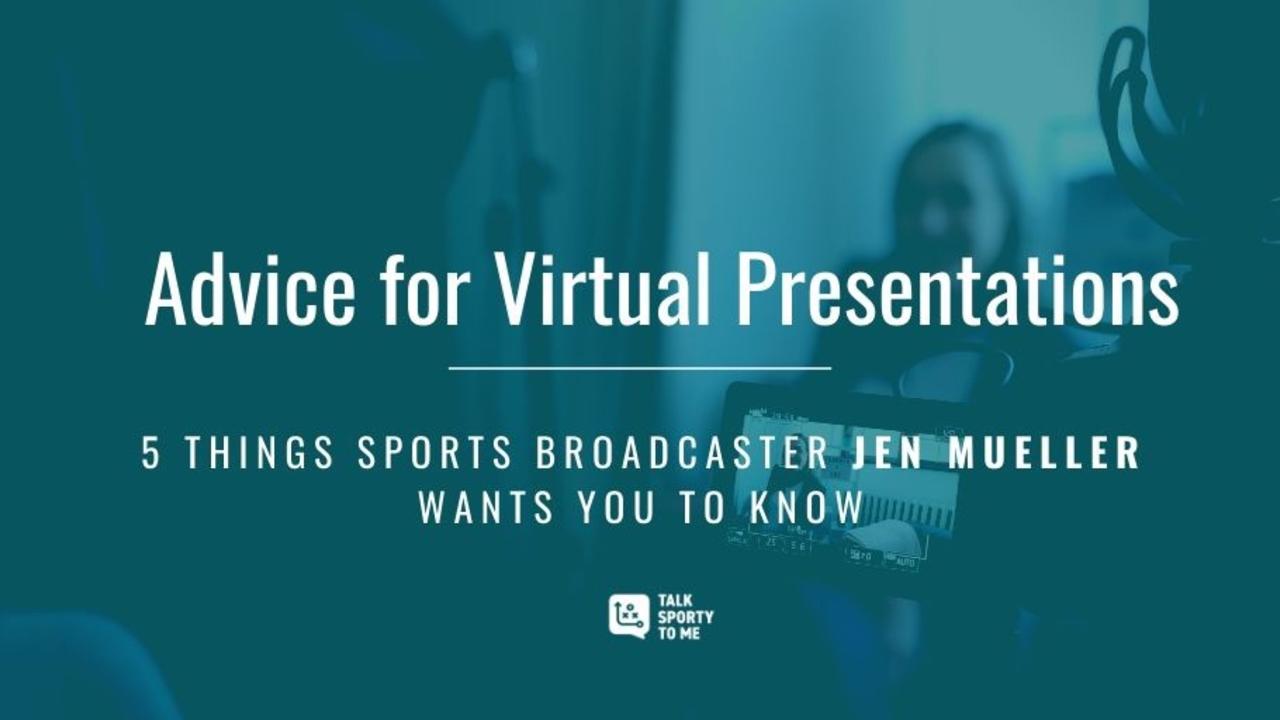
My ability to talk is a bit of a family joke and was well-documented by teachers who noted on every single report card that I had a tendency to “talk too much.”
Everyone agreed a job in sports broadcasting seemed like the perfect fit for me, but no one in my family believed me when I said I was exhausted after talking all day.
After all, what was so different about getting paid to do something I did naturally?
Here’s the difference: the camera.
Being on camera requires a different level of focus, energy and planning.
It’s part of the reason you’re Zoom’ed out, frustrated by having to dial into yet another meeting that seems like even more of a waste of time than usual and more exhausted by the end of the day despite not leaving the house. Certainly, the stress and uncertainty of during this pandemic are part of that dynamic but you should also acknowledge the stress of being on camera.
Virtual meetings, happy hours and interactions...
Learn from a Leader: High School Student Athletes on Leadership in Uncertainty
Outcomes determine winners.
In sports, it's the final score or the fastest time that indicates a win. But what happens in the absence of outcomes, during a time of uncertainty?
Winning looks different.
For high school seniors unable to finish out their sports careers, winning can't be defined by games, races or matches. "Winning" becomes about their leadership skills in a time of uncertainty, their willingness to continue showing up for teammates and their ability to show gratitude for coaches, teachers and parents.
I recently spoke to a group of high school seniors from Bellevue Christian School to learn how they've been affected by COVID-19 and how it's helped them develop leadership skills.
Each one talked about the sports lesson they've leaned into during a time of uncertainty and serves as reminder that sports is more than outcomes. It's an opportunity to lead and provides a blueprint for overcoming challenges and challenging times.


